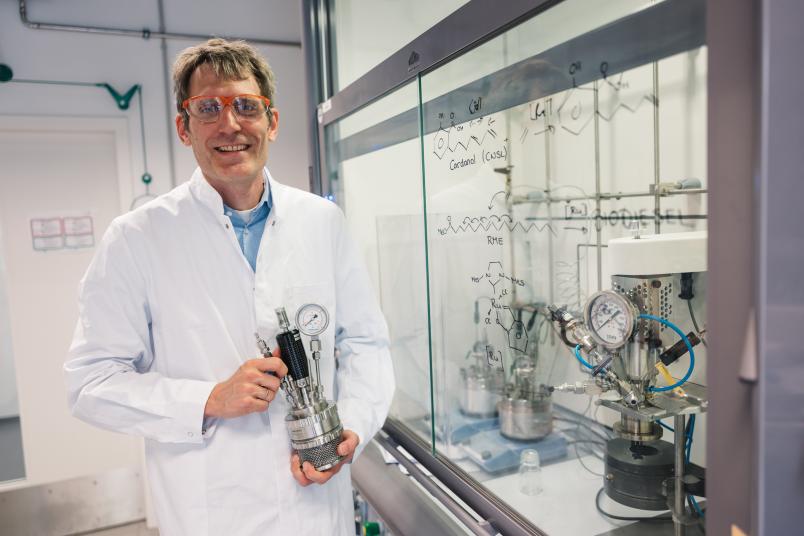
Innovative technique
Researchers produce biofuel for conventional diesel engines
Up to now, pure biodiesel has caused problems in conventional engines. This could change.
In accordance with an EU directive, conventional automotive diesel is supplemented with seven percent biodiesel. This proportion is set to rise to ten percent by 2020. However, this presents a significant technical challenge: biodiesel vaporises at higher temperatures, which can lead to problems with electronic fuel injection systems and particulate filters. Researchers from Kaiserslautern, Bochum, and Rostock have developed a method for producing a petroleum diesel-like fuel from conventional biodiesel at low temperatures. The new biofuel fulfils the current EU and US requirements. It can be used undiluted in modern diesel engines or mixed in any ratio with petroleum diesel. The researchers present their work in the prestigious journal Science Advances.
Pure biodiesel can cause problems
In Europe, biodiesel is largely produced from rapeseed oil. Chemically, it comprises long-chain hydrocarbon compounds, known as fatty acid methyl esters. It has different properties to diesel obtained from mineral oil. For instance, the boiling point is much higher. This means biodiesel tends to vaporise only partially, and to form deposits on engine components. This makes pure biodiesel unsuitable as a fuel for standard engines. Injection pumps, seals, and pipes would need to be constructed differently. “Cars fuelled with pure biodiesel require specially designed engines,” explains Dr Lukas Gooßen.
In collaboration with chemists Kai Pfister and Sabrina Baader from the collaborative research centre 3-MET at the University of Kaiserslautern, Gooßen has developed an innovative technique for treating biodiesel. “With virtually no energy input, we convert a mixture of plant-derived fatty esters and bio-ethylene, another chemical compound, into fuel,” the professor says. “This can be combusted undiluted in modern diesel engines.”
Chemical properties precisely adjustable
The particular advantage of this new technique is that the researchers are able to precisely adjust the chemical properties of the mixture. “We combine two catalytic methods to transform the long-chain fatty esters into a mixture of compounds with shorter chains,” he elaborates. This process changes the ignition and combustion properties of the biodiesel. Combustion starts at lower temperatures. “We are thus able to adjust our biodiesel to the applicable standards for petroleum diesel,” Gooßen adds. Moreover, the process is environmentally friendly: it neither requires solvents, nor produces waste.
The two methods were synchronised with each other using mathematical simulations by Mathias Baader from the University of Kaiserslautern. Silvia Berndt at the University of Rostock proved that the mixture complies with the strict standard (EN 590) for modern diesel engines. In preliminary test runs, Kai Pfister has managed to demonstrate that this new diesel fuel can actually power a model car.